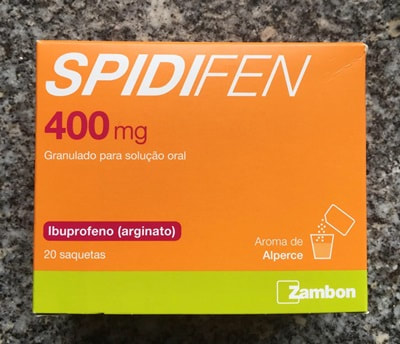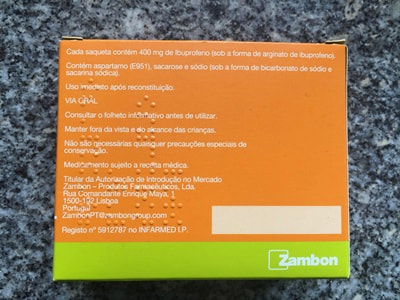|
Part of the reason we’ve been quieter than normal with our posting is that we finally became ill in our new country. Both Harold and I had wondered how long it would be before one, or both of us, succumbed to a cold after our arrival in Portugal. The answer was four months and Harold was the first victim, followed shortly by me. As colds go, these were nasty, lasting some ten days, with far more exhaustion than we were accustomed to. However, unlike in the past, Harold didn’t succumb to bronchitis and we suspect this is because he didn’t have to return to work ill, as was the case in the past. But everything is a learning experience here, so we now know more about how Portugal works, at least in regards to over-the-counter (OTC) medications. Read on to see what we've discovered. As I didn’t bother to pack cold meds—they are pretty much ubiquitous—I had to find some cough syrup for the spouse. In the U.S. you have a number of places at which to purchase that cough syrup: You can go at your local grocery store, a gas station, or any one of the chain retailers, such as CVS, RiteAid, etc. In the case of the latter, you stroll down the aisle, pick up the various selections and check them out for ingredients, side effects, and price. You only approach a pharmacist or a tech if you have questions or can’t find exactly what you want, at least if it’s OTC. As is often the case, one assumes other countries work the same based on your experience back home. England does, for instance, as a trip to a Boots will net you everything you need for that hideous cold. This is one of those times my assumptions were wrong. To our surprise, OTC meds are not available anywhere else but at a pharmacy (farmácia). We can buy makeup, hair care products, cat food and many of the other items you’d find at the stateside retail chains at a store named Clarel (Google says it’s a discount supermarket), but no meds. None. Okay, then. So here’s how you go about obtaining your non-prescription meds at a farmácia. First, to make it easier for everyone, do your homework. When I needed a strong non-steroidal anti-inflammatory (NSAID) for my neck, I dug around various websites and learned that Naproxen (Aleve in the States), is available here and can be bought at U.S. prescription levels (500 mg) without a script. I also learned what it is called here, as medication names can vary depending on the country. (I found trade names on various Wikipedia pages, of all places, so do snoop around.) In this case, the generic version is available as Naproxeno Generis. Advil (ibruprofen) is called Spidifen and it’s available in various forms, including a powder (see above). Note the Braille on the back the package -- what a great idea! Despite the slight yucky apricot flavoring, Spidifen works fine for daily aches and pains. In our city, the majority of the pharmacies close for the weekend, or around one on Saturday. There are, however, a certain number of shops that are open 24/7, which will be important down the line if we need to source meds off hours. Better to have a list of those before you're scrambling to buy antibiotics or some other prescription medication. Most pharmacy employees speak some English, but I figured it’s best to write the Portuguese med’s name on a sticky note in case the employee can't understand your American accent. If it’s something I’ve bought before I bring the box so the person at the counter has a clue. For the cough syrup, it was xarope para tosse (suppressor). Essentially "syrup for a cough" and then “suppressant”. I also had memorized why I’m buying it. In this case, it was the Portuguese phrase “My husband has a cold and a dry cough.” Pro Tip: Portuguese businesses (and governmental offices) often have queue ticketing machines (máquina com senhas) where you retrieve a slip of paper which gives you a number that indicates your place in the queue. There’s usually a digital board that ticks down each number and tells you where to go to talk to the appropriate person. If the farmácia doesn’t have one, then queue up as needed. At our local pharmacy the lady at the counter spoke great English, which helped. She asked a few pertinent questions, then she returned with the appropriate type of syrup. Then she translated exactly how much Harold should take, how often, and the maximum dose per day. I was pleased by this because not all of us can work through the Portuguese instructions on the back of the packages. Fortunately, I usually can at this point—I read the language better than I can speak it. (If you can’t, use Google Translate.) Still, her efforts were very thoughtful. The purchase was made and both Harold and I used the cough syrup. He’s allergic to some ingredients found in cold preparations so more research is needed to determine if there is something else he can be using in addition to the cough syrup. That’s one of the joys of relocating: finding new products that you didn’t know existed, and that might work a whole lot better than what you had in America. Down the line I’ll write a post about what it’s like to obtain prescription medications at a farmácia. I’m not sure if there are other hoops to jump through or not, but I will be having that experience in the next week as I renew my U.S. medications. Meanwhile, we've survived our first colds and are enjoying the fact we're no longer coughing all the time. Welcome to Portugal!
Maria Manney
3/16/2018 01:52:49 am
Hello,
Maria,
Layne
6/3/2018 05:02:18 pm
Further to your posts on health, have you given any thought to care when you become elderly or frail and potentially need extra help or assisted living? Are there places like continuum of care communities in Portugal? We are investigating a move, but have concerns about the next steps if we become frail and need assisted living. We have no children, so there is no one to call. We understand how it works in the States, but can’t find very much info for Portugal. Thanks!
Jana
6/3/2018 07:03:16 pm
To be honest, we haven't gotten that far yet. We're in the same situation (no offspring) so eventually we will have to address this issue. From what I'm seeing online there is governmental awareness that Portugal's aging population will be in need of increased support in coming years.
Layne
6/4/2018 12:12:06 am
Thanks so much! Continuum of care is our primary concern about moving outside the States. Comments are closed.
|
Your HostsHarold is a former software engineer. Jana is an author. Together they're exploring their new life in Portugal. Archives
December 2022
Categories
All
|



 RSS Feed
RSS Feed